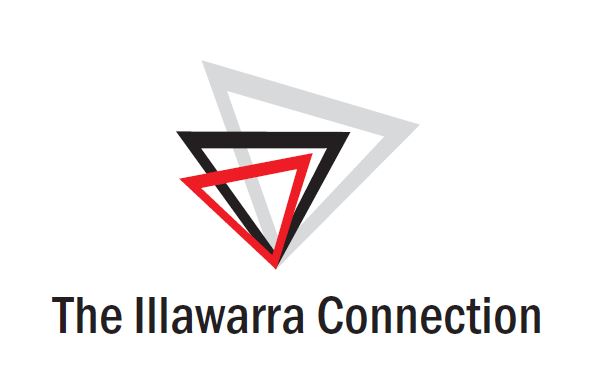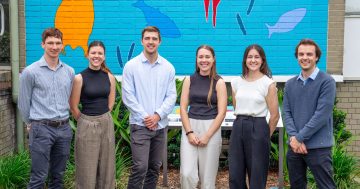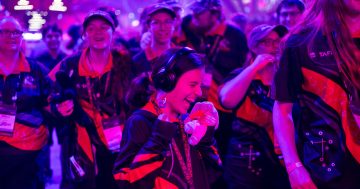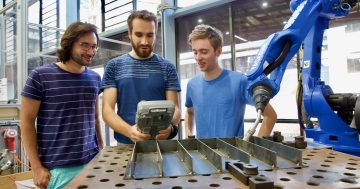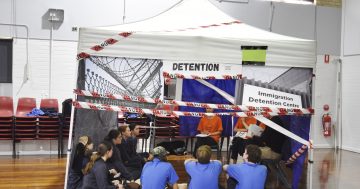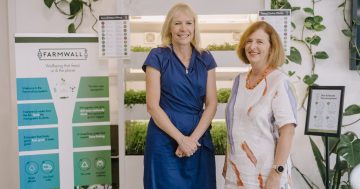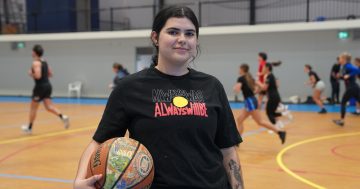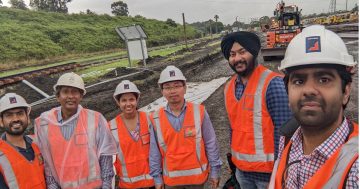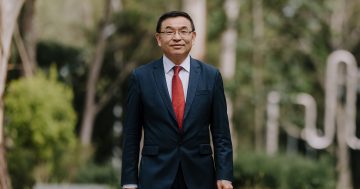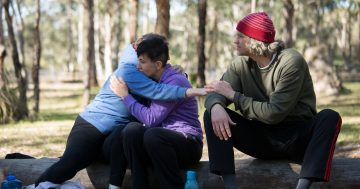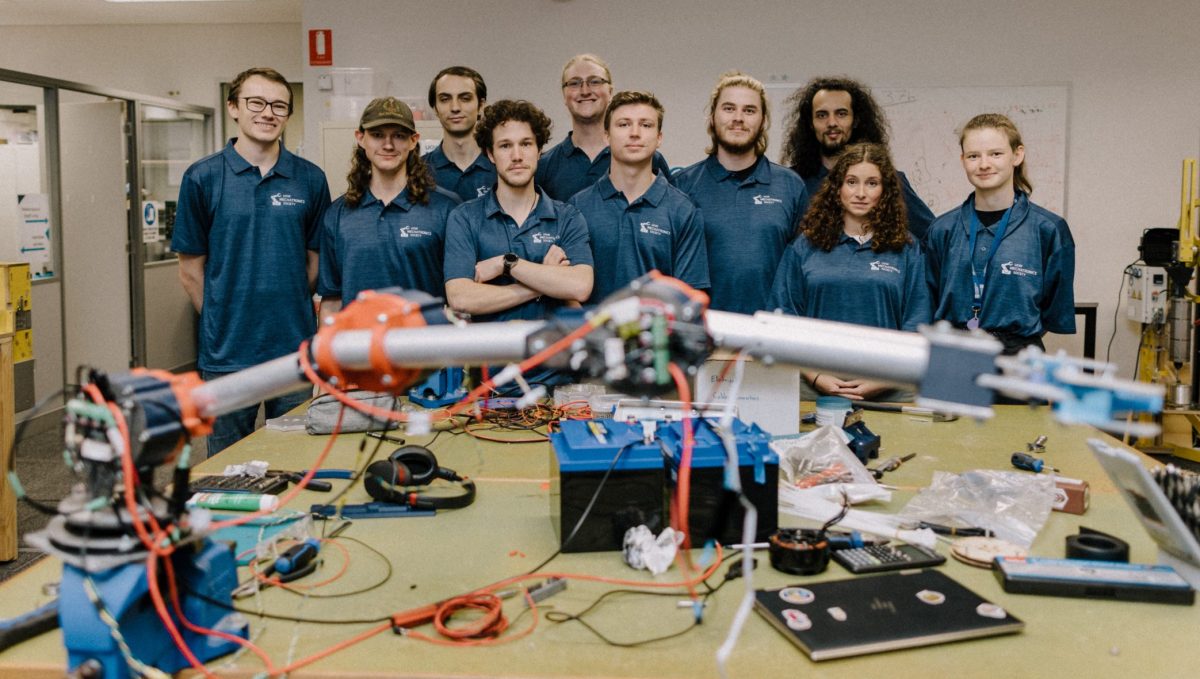
Members of the UOW Rover Team which is taking part in the Australian Rover Challenge. Photos: UOW.
A team of Wollongong students is reaching for the moon this week, competing against peers from around the country and the world to create a robotic lunar rover.
It’s the first time a Wollongong University team has been selected to compete in the Australian Rover Challenge (ARCh), hosted by the University of Adelaide.
The ARCh is an annual robotics competition in which students design and custom-build semi-autonomous rovers that compete across a lunar mission, in a simulated lunar environment.
The competition – which runs until Sunday (24 March) – aligns with the increasing interest in lunar exploration and the development of technologies that may be crucial for future lunar missions.
The UOW team of 14 students, competing as the UOW Rover Team, will compete against teams from Poland, India and Bangladesh, and 10 Australian teams.
They will display their skills and undertake a range of tasks including navigation, resource exploration, construction and mapping.
UOW undergraduate and team lead Connor Kellalea brought the group together through his involvement in the student-run Mechatronics Engineering Society, where he is treasurer.
The mechatronics and finance student said the team had spent the past three months refining, building and iterating to make the top 10 teams invited to compete in the ARCh. The team is currently sitting in ninth position.
“It is a huge time commitment. We worked on it the entirety of the summer holidays. We were in the labs on the first week of the year, just building and modelling it all up. It was tough,” Connor said.
“The start of the engineering process is to figure out what the problem is, research it, try to come up with your own solution, then adapt it and iterate over time until you get the final thing that can compete on a simulated lunar surface.”
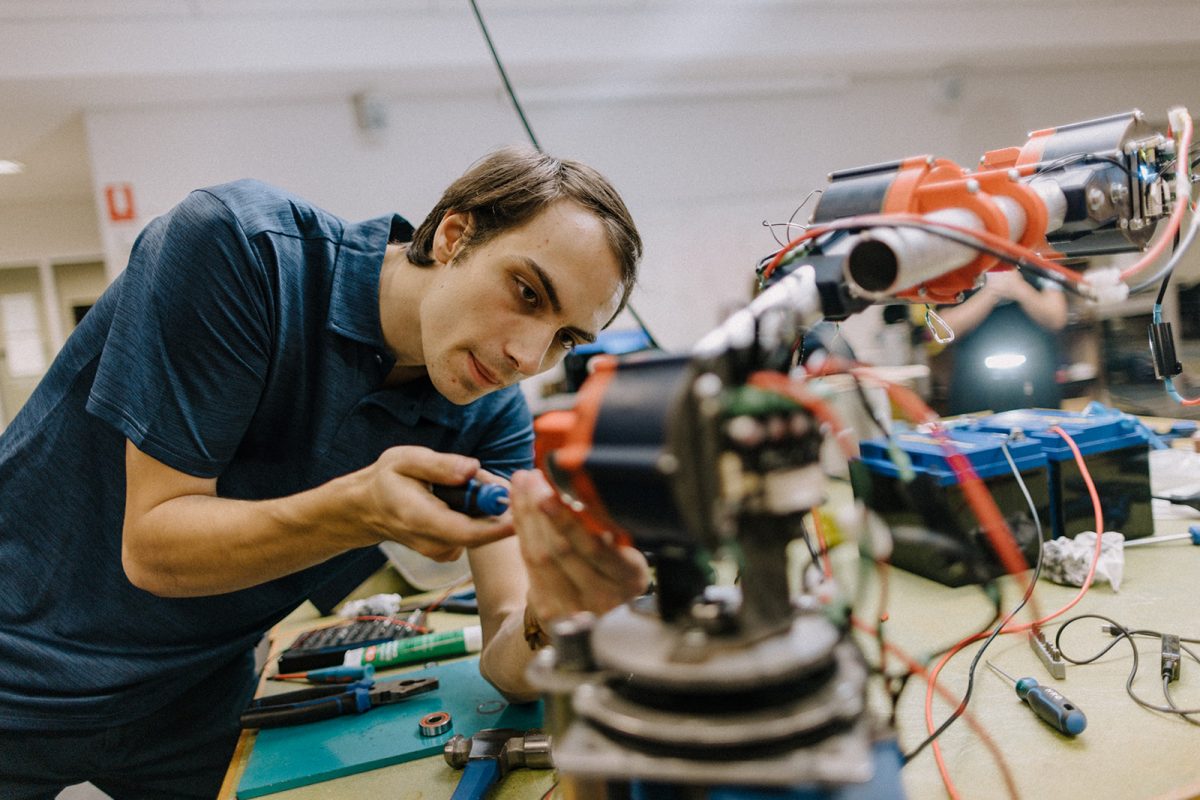
Bodhi Bailey working on the robotic rover.
The competition aims to inspire the next generation of space engineers to learn-by-doing through a hands-on simulated mission to the moon and to display Australian student talent and capability in space activities.
The UOW Rover Team has been successful in both the ‘Critical Design Review’ and ‘Systems Acceptance Review’ phases, demonstrating to the judges they have a viable rover design to compete in the ARCh.
“We put the rover on a platform and then drive it around, pushing buttons with the arms, pulling levers and hooking up to fuel connectors,” Connor said.
“In the second task, teams must move rocks out of the way and erect pavers for the rover to drive over, emulating if we were around the main campsite on the moon. Instead of having the dust kick up, the pavers provide dust mitigation.”
In the lead-up to Adelaide, the team has been busy with test missions at Towradgi Beach.
For Georgi Coddington, UOW Mechatronics Society’s Vice President of Communications, working on the Rover Challenge has been the perfect opportunity to align her passion for the space industry with her studies in mechatronic engineering and mathematics.
Georgi, who plans to study a master’s in aerospace engineering after she graduates, has been focused on securing sponsorship and financing for the project to get the team to Adelaide.
“As the club grows a bit more, we will have the opportunity to participate in a lot of competitions and grow our connections,” she said.
Research Fellow from the Facility for Intelligent Fabrication and the School of Mechanical, Materials, Mechatronic and Biomedical Engineering Dr Joseph Polden said the team had come together quickly to address some interesting space engineering problems.
“The students are handling everything, from organising weekly progress meetings to tackling all the technical aspects of the rover’s design,” Dr Polden said.
“This society is in a brand-new iteration, and they have nailed down these processes in their first go. Their self-sufficiency, efficiency and technical achievement are seriously impressive.”




